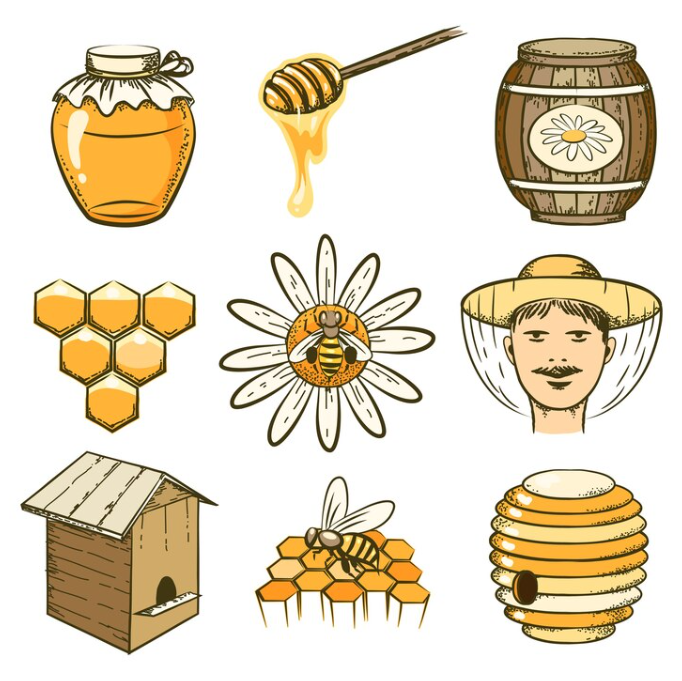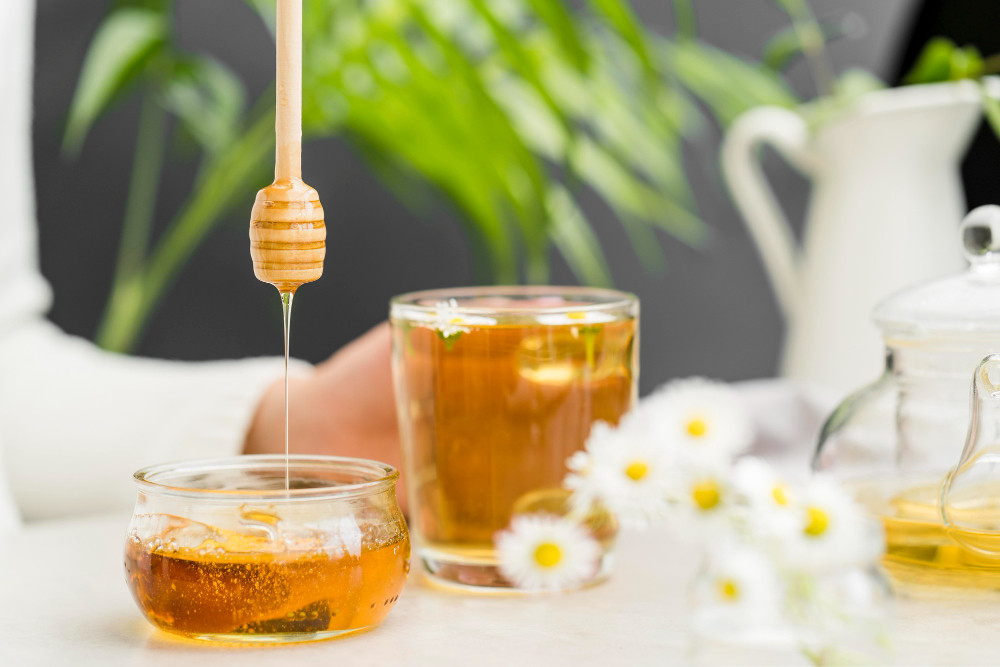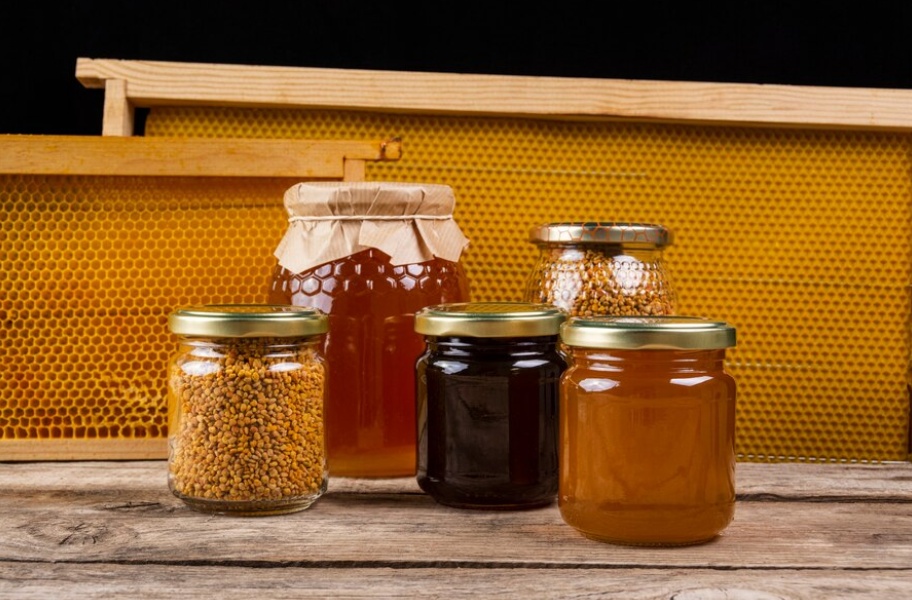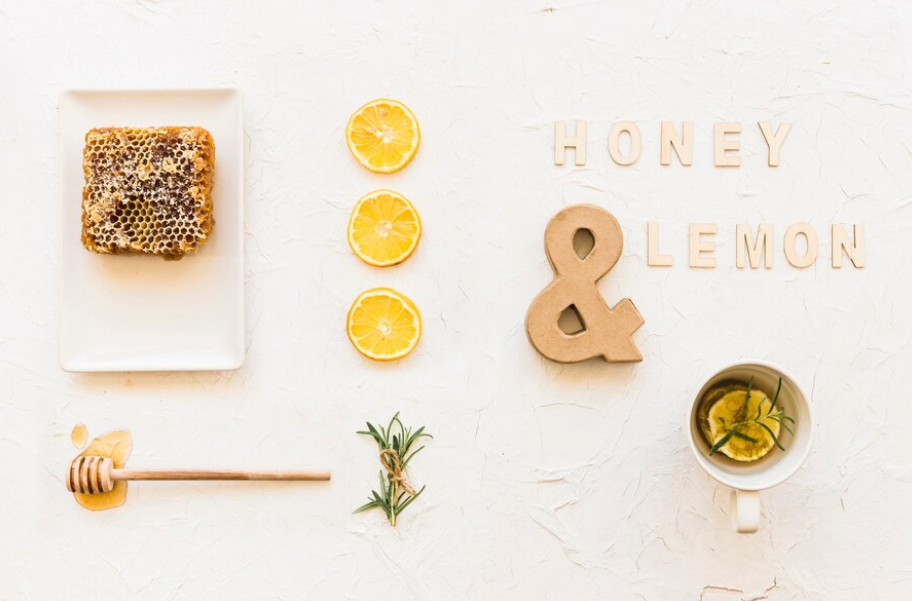Why Honey Never Spoils and How to Store it for Best Quality?

©️ macrovector / Freepik
Honey, the golden nectar produced by bees, is more than just a delicious sweetener.
It boasts a rich history, medicinal properties, and a remarkable shelf life that sets it apart from most foods. Unlike fruits and vegetables that succumb to spoilage, honey never spoils. When stored properly, it can last for decades or even centuries!
This article delves into the fascinating science behind honey’s longevity, explores factors affecting its quality, and provides tips for storing this natural wonder.
Honey: A Gift from Nature With a Unique Composition
Honey’s exceptional shelf life can be attributed to its unique composition. Unlike most foods, honey has a very low moisture content (around 18%) and a high sugar concentration (around 80%).
This high sugar content creates a saturated environment that inhibits the growth of bacteria and fungi, the primary culprits behind food spoilage.
Additionally, bees naturally add an enzyme called glucose oxidase to the honey during production. This enzyme converts glucose into hydrogen peroxide, a natural antibacterial agent that further discourages microbial growth.

Honey Shelf Life: Myths and Realities
Commercially available honey often comes with a “best by” date. This doesn’t necessarily indicate spoilage but rather the timeframe within which the honey retains its optimal flavor and texture. Pure, properly stored honey can be safely consumed well past this date.
Archaeological evidence supports this claim. Honey jars unearthed from ancient Egyptian tombs, estimated to be thousands of years old, were found to be still edible! This remarkable discovery highlights honey’s ability to withstand time under the right conditions. In other words, when stored properly, honey never spoils.
Factors Affecting Honey Quality
While honey boasts a near-indefinite shelf life, certain factors can affect its quality:
Heat: Exposure to high temperatures can accelerate the breakdown of vitamins and antioxidants in honey. Store honey in a cool, dark pantry.
Moisture: Excess moisture can dilute the honey and promote fermentation. Keep the jar tightly sealed and avoid storing it near sources of moisture.
Light: Direct sunlight can degrade the quality of honey over time. Opt for opaque containers or store honey in a cabinet away from light.

Honey Crystallization: A Sign of Quality, Not Spoilage
Over time, honey may crystallize, turning cloudy and grainy. This is a natural process caused by the high glucose content solidifying. Crystallization doesn’t affect the safety or edibility of honey. In fact, some believe it enhances the flavor. If you prefer a smoother texture, you can gently warm the honey in a hot water bath to redissolve the crystals.
How to Store Honey for Best Quality?
Here are some key tips for storing honey to maintain its quality for extended periods:
- Use airtight containers: Store honey in a glass jar with a tight-fitting lid to prevent moisture contamination.
- Choose a cool, dark location: A pantry or cabinet away from heat and light sources is ideal.
- Avoid storing near heat sources: Don’t keep honey near the stove, oven, or dishwasher.
- Don’t use a wet spoon: Moisture introduced through a wet utensil can promote fermentation. Use a clean, dry spoon when scooping honey.

Beyond Sweetness: The Health Benefits of Raw Honey
Raw honey, unprocessed and unfiltered, retains more of its natural enzymes, antioxidants, and beneficial pollen compared to processed honey. These components contribute to raw honey’s potential health benefits, which include:
- Antibacterial properties: Honey’s natural hydrogen peroxide content can help fight bacteria and promote wound healing.
- Antioxidant powerhouse: Raw honey is rich in antioxidants that can help combat free radical damage in the body.
- Nutritional value: Raw honey provides a small amount of vitamins, minerals, and enzymes.

Important Note: Raw honey is not recommended for infants under one year old due to the potential risk of botulism spores.
In conclusion, honey is a remarkable natural product with a near-indefinite shelf life when stored properly. By understanding its unique composition and following simple storage tips, you can enjoy the delicious taste and potential health benefits of honey for years to come.
So, the next time you reach for that jar of honey, remember, you are holding a timeless treat – a gift from nature that defies spoilage.
You may also like: Honey Bees: Their Role and Crucial Environmental Importance


